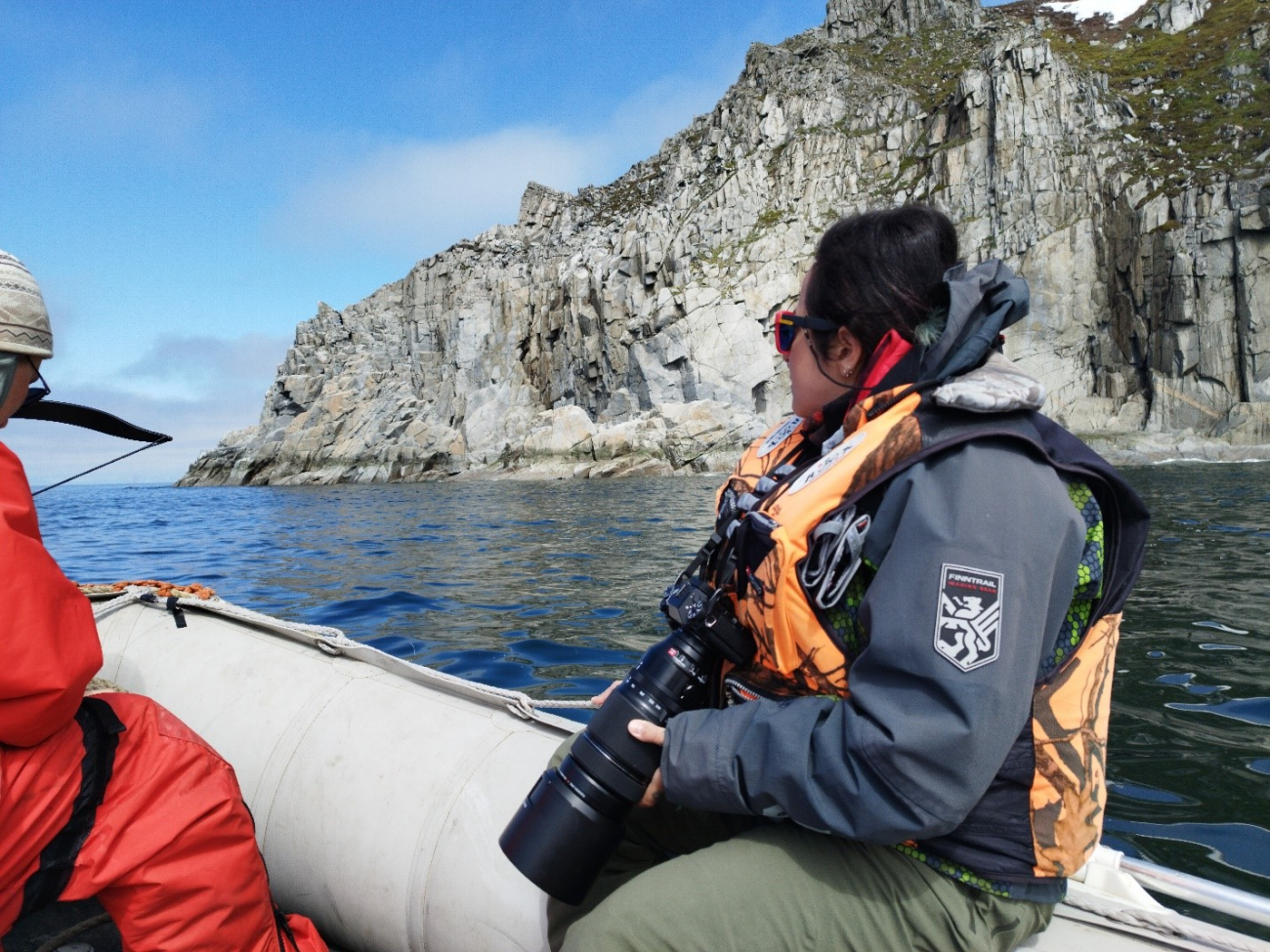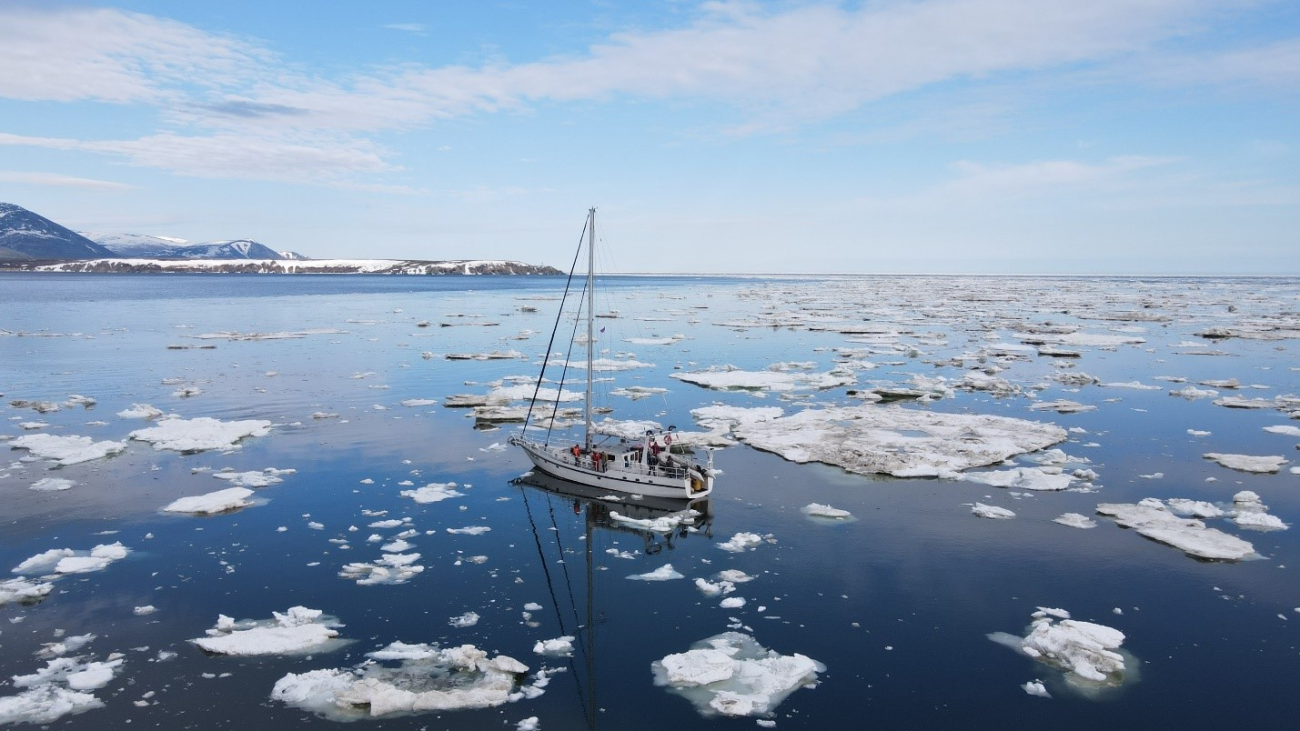
Experts from the Institute of Ecology and Evolution of the Russian Academy of Sciences, with the support of the World Around You Foundation Siberian Wellness, went on an expedition to Shelikhov Bay in the northern Sea of Okhotsk to discover whether bowhead whales could be found there. According to eyewitness accounts and literary sources, it is known that cases of encounters with whales in this area have been recorded. The main goal of the expedition was to update and verify this data.
Experts have been studying the Sea of Okhotsk population of bowhead whales for more than 20 years. Previously, the main work was carried out off the coast in the Shantarsky region, where whales come in the summer. Where they spend the rest of the year is still unclear. Finding new whale sites in the Sea of Okhotsk is an important step in studying the rare mammal and developing a strategy for its protection. They managed to find such a place - experts found about 13 whales in Shelikhov Bay.
As part of the expedition, a research team of six people spent 25 days at sea. During this time, 253 hours of observations were carried out, which is almost 10.5 days in totality. They also covered 4,345 kilometers on a yacht and another more than 330 kilometers on a motor boat.
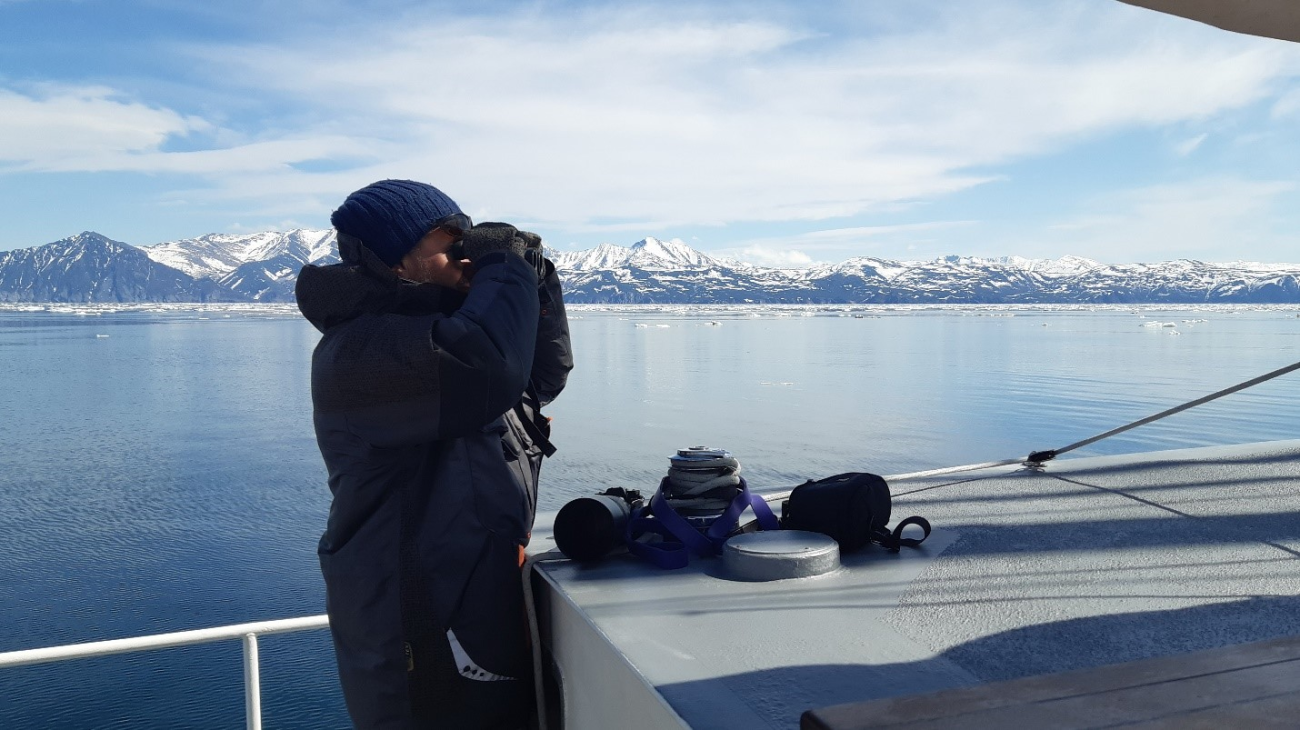
Researchers were able to take genetic samples from two whales that will help clarify their sex and identify the individual. Five animals were examined in sufficient detail: they were identified by visual characteristics and entered into the database, which already contains more than 250 individuals.
Now specialists from the Institute of Ecology and Evolution of the Russian Academy of Sciences will have to find out whether the animals encountered in Shelikhov Bay are related to the summer Shantar herd - this will allow us to learn more about how the Sea of Okhotsk whales move through the sea.
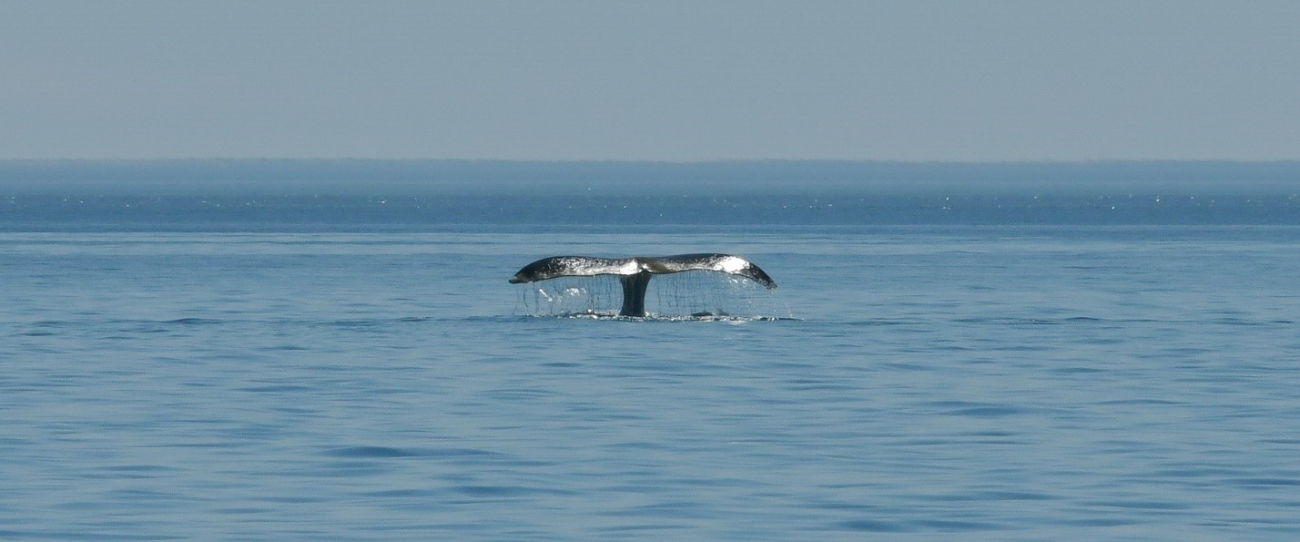
Saker falcons need enhanced protection. Over the past 20 years, the number of these birds in Russia has decreased by half, and Altai Saker Falcons have practically disappeared from nature. The main reasons are poaching and trapping for the needs of falconry enthusiasts in Arab countries and the danger of unprotected power lines.
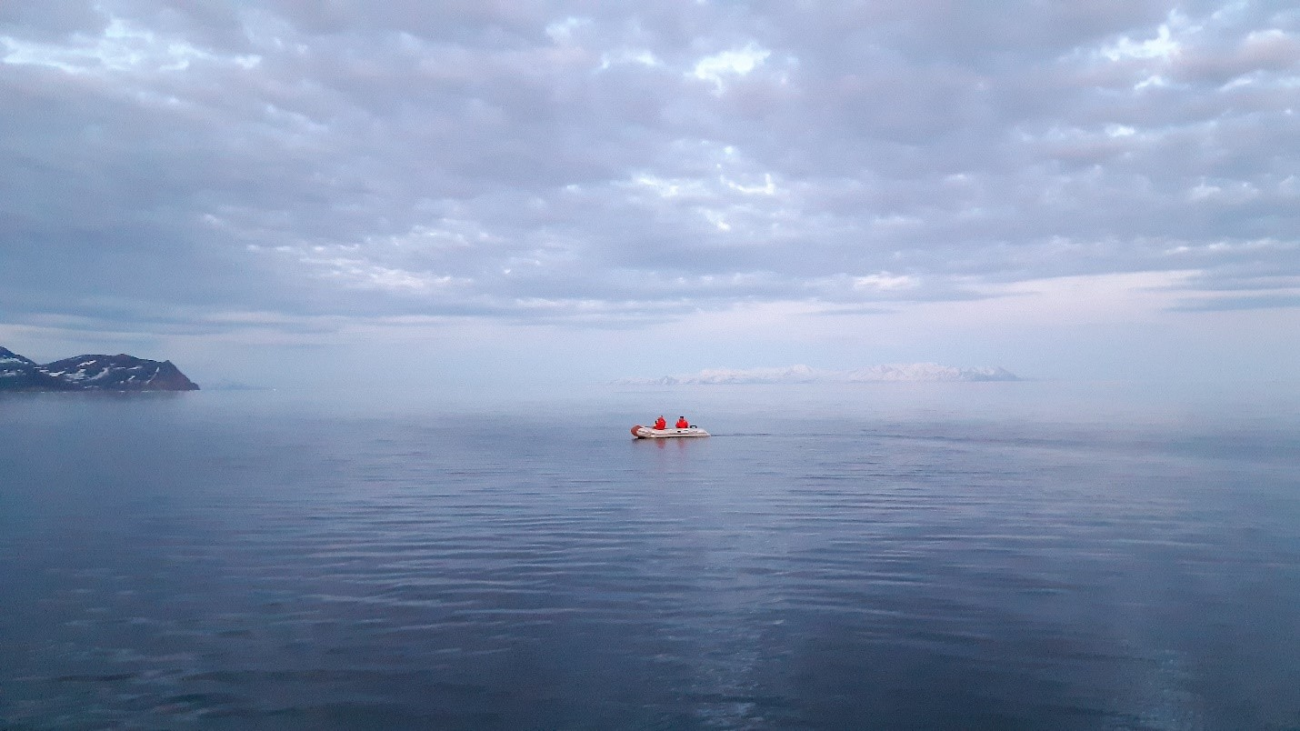
The Sea of Okhotsk population of bowhead whales has been under the care of the World Around You Foundation Siberian Wellness since 2022. By the end of the 19th century, their numbers were greatly reduced as a result of fishing; today there are only 300–400 individuals. And even now, when whales are not threatened by fishing, they face other threats and are vulnerable to them.
